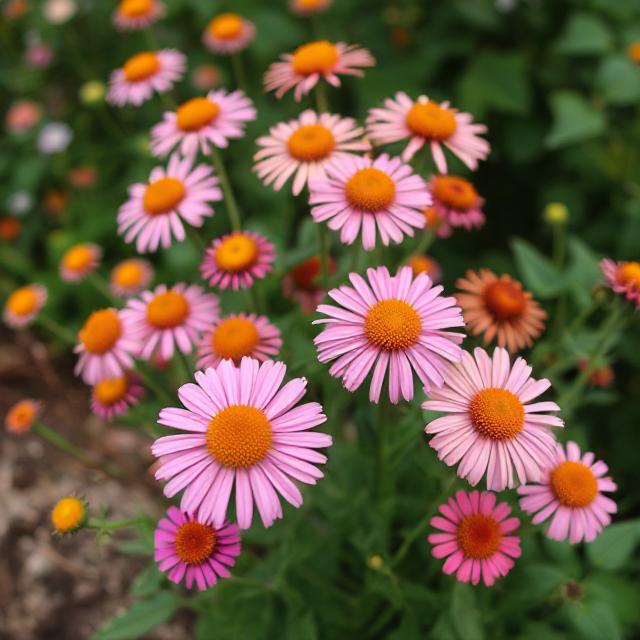Introduction to Round Flowers
Flowers have always been nature’s way of delighting the senses and uplifting spirits, but there’s something undeniably captivating about round flowers. Their perfect symmetry and balanced shape make them a favorite in gardens, floral arrangements, and cultural symbolism worldwide. From the intricate patterns of dahlias to the minimalist geometry of alliums, round flowers offer a variety of aesthetic and functional qualities, making them timeless treasures in the plant kingdom.
What Makes Round Flowers Unique?
The unmistakable draw of round flowers lies in their symmetry. Their spherical or rounded form naturally appeals to the human eye, often symbolizing harmony, completion, and unity. This symmetry is not just beautiful—it’s functional, too. The circular shape of these flowers helps enhance their role in nature, particularly when it comes to pollination.
Pollinators such as bees, butterflies, and birds are naturally drawn to round flowers. The uniform shape often makes it easier for them to land and collect nectar and pollen, ensuring the plant’s reproductive cycle is successful. Furthermore, the radial arrangement of the petals in many of these flowers creates a visual target that helps guide pollinators directly to the center where nectar is found.
Popular Types of Round Flowers
Round flowers come in many varieties, showcasing nature’s incredible creativity. Here are three standout examples:
Dahlias
Dahlias are the quintessential round flower, known for their incredible range of colors and petal arrangements. Their blooms are often made up of layers upon layers of perfectly organized petals, resembling intricate geometric patterns. Dahlias are a staple in summer and fall gardens and are cherished for their ability to create a harmonious yet dramatic effect in any floral display.
These flowers are also steeped in cultural symbolism. While their meanings vary by color, dahlias as a whole typically represent strength, creativity, and change. Whether planted in flower beds or presented as part of a bouquet, their round forms add an unmistakable charm to any setting.
Alliums
Known for their strikingly modern, spherical presentation, alliums are essentially clusters of tiny star-shaped flowers that form a perfect globe. Alliums often grow on tall, straight stems, making them architectural showpieces in gardens.
These flowers are closely related to onions, garlic, and chives, which adds an edible twist to their appeal. However, in the garden or floral decor, their beauty truly shines. The simplicity of their rounded form often creates a striking contrast when paired with other flowers, making them a favorite among designers and gardeners who appreciate clean and minimalist aesthetics.
Chrysanthemums
Chrysanthemums, affectionately called “mums,” are another stellar example of round flowers with universal appeal. Their blooms vary from simple, daisy-like forms to densely packed, ball-shaped varieties that epitomize symmetry. Commonly associated with fall, chrysanthemums are a popular option for seasonal decor and thrive in gardens or containers.
Different cultures have imbued chrysanthemums with layered meanings. In many Western countries, they symbolize life and joy, while in East Asia, they often represent longevity and rejuvenation. Their versatility and diversity make them suitable for both celebratory arrangements and solemn tributes.
The Role of Round Flowers in Gardening and Design
The rounded shapes of these flowers make them versatile additions to any garden or floral arrangement. Here are some ways their form affords aesthetic and practical advantages:
Garden Appeal
Round flowers bring a sense of balance to gardens. Their symmetrical forms act as focal points, drawing the eye and creating visual order amidst the sometimes chaotic growth of other plants. For instance, pairing tall, spherical alliums with lush greenery can create striking displays of height and texture. Mums and dahlias, on the other hand, lend themselves perfectly to borders and flower beds where their bursts of color and shape command attention.
Additionally, round flowers often provide a rhythmic element in landscape design. By dotting gardens with evenly spaced round blooms, gardeners can create flowing patterns that guide the gaze through the space, delivering a calming yet dynamic effect.
Floral Arrangements
Florists adore round flowers for their versatility. They work beautifully as standalone blooms in minimalist arrangements or as anchor pieces that establish structure in more intricate bouquets. Their rounded forms make them easy to blend with other shapes and sizes of flowers, providing a balanced composition that feels natural yet polished.
For instance, a wedding bouquet featuring dahlias and chrysanthemums might exude elegance and romance, while an arrangement combining alliums with grasses and wildflowers might evoke a more modern, rustic charm.
Symbolism and Cultural Significance
Beyond their beauty and function, round flowers carry profound cultural and symbolic meanings. Across cultures, they’ve been linked to concepts of unity, wholeness, and eternal cycles.
- Eastern Traditions: Round chrysanthemums are celebrated as symbols of longevity and vitality in Chinese and Japanese cultures. They’re often displayed in festivals and ceremonies, emphasizing their association with happiness and life’s endless flow.
- Western Symbolism: Dahlias are seen as symbols of inner strength and originality, often given as a gesture of encouragement or admiration. The rounded clusters of alliums, meanwhile, have modern cultural appeal often linked to creativity and elegance.
This enduring symbolic resonance adds to the allure of round flowers. Whether they’re used to commemorate special events, decorate festive occasions, or simply beautify our daily spaces, these blooms carry rich layers of meaning that deepen our connection to them.
A True Testament to Nature’s Genius
There’s no denying the universal appeal of round flowers. Their symmetry, functionality, and cultural significance make them treasures both in nature and in the hands of gardeners and florists alike. Whether you’re marveling at the layered intricacies of a dahlia, delighting in the neat globes of an allium, or admiring the cheerful roundness of chrysanthemums, these flowers remind us of nature’s knack for pairing beauty with purpose.
Including round flowers in your garden or home isn’t just about aesthetics; it’s a celebration of harmony, utility, and the timeless appeal of shapes that balance our world.



